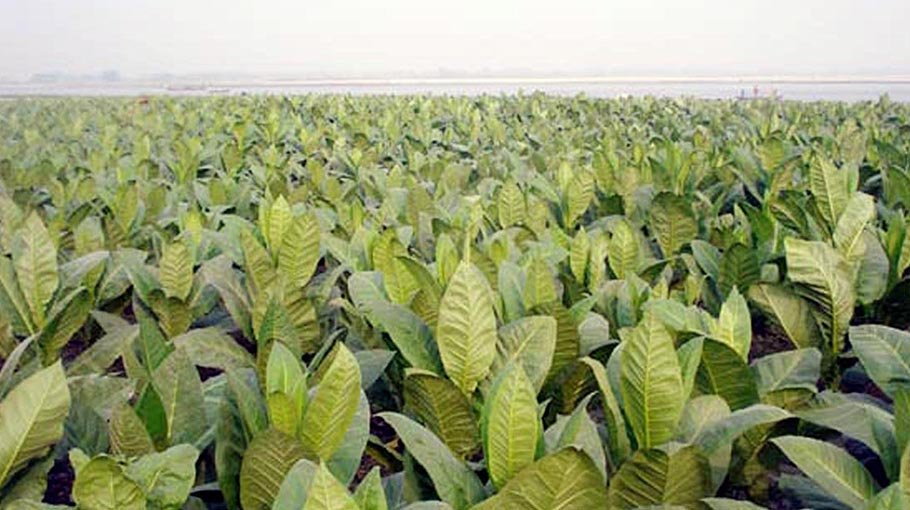Tobacco farming in Rangpur not diminishing

May 31 was World Tobacco-Free Day. Although the day is celebrated everywhere with the theme of 'Tobacco Free Environment, Healthy Bangladesh', this harmful tobacco farming is not leaving behind the farmers in Rangpur. At one time Rangpur, famous for its tobacco, remained the same. Although potato has been cultivated in about 50,000 hectares of land in Rangpur this year as an alternative crop, tobacco cultivation has not come down. Farmers are vulnerable to tobacco cultivation due to the complexity of seed production in alternative crop production, high production cost, non-availability of fair price of the product and lack of storage facilities. On top of that, tobacco related organizations are motivating the farmers with loans. As a result, despite the government's discouragement, farmers in Rangpur are not giving up tobacco cultivation.
According to the investigation, at one time, tobacco was the main crop of Rangpur region. The Virginia variety of tobacco was highly valued by the major tobacco companies in the country. Traders from the region built a huge network around the country around tobacco. Small traders used to make a lot of money by trading tobacco without any capital. At that time bidi, cigarette, gul, jorda and other tobacco related organizations were formed in this area. Keeping in view the needs of the farmers of the area, according to the survey of the then British government, a tobacco research center was established at Burirhat in Rangpur in 1906. The company collected 114 varieties of tobacco from within the country and abroad at that time. It also invents new varieties of tobacco, including two high-yielding varieties, Survi and Sugandhi.
Later, considering the harmful aspects of tobacco, farmers are being discouraged from cultivating it nationally and internationally. As part of this, the Rangpur depot of Bangladesh Tobacco Company (BTC), a large tobacco company, was closed down. The tobacco research center was transformed into an agricultural research center. Since 1985, the company has been conducting research on alternative crops such as maize, sunflower, mustard, and almonds so that farmers can benefit more than tobacco. Even then, the cultivation of harmful tobacco is not decreasing.
According to the Agriculture Department, tobacco is the crop of winter season. Tobacco was cultivated in about three thousand hectares of land in Rangpur district this year. Although in reality the amount is much higher. Of these, tobacco has been cultivated in a maximum of one thousand hectares of land in Gangachara upazila. Extensive tobacco is also cultivated in Rangpur Sadar, Taraganj, Badarganj and Kaunia upazilas. According to the source, the reason for this is that since the time of ancestors, tobacco cultivation has been known to the farmers. Its seeds can be easily collected and stored at home. There is no problem in preserving the tobacco produced and the price is higher than other crops. Moreover, the farmers are not giving up tobacco cultivation as the tobacco related institutions have guaranteed to buy tobacco with loans.
On the ground, various areas of Gangachara Upazila, known as tobacco dependent areas, can be seen. Although potato was cultivated in a large area as a crop of winter season, it did not have any effect on tobacco cultivation. Wherever the eye goes, only tobacco fields can be seen. Especially the Teesta shelf seemed to be covered under tobacco. At this time, the farmers spend their busy time in irrigating the tobacco fields, collecting leaves and drying them. Hamid Mia, a tobacco farmer in Kalagachhi Char, said that their only hope is tobacco cultivation. Looking forward to the whole year when the tobacco season comes. Sadequl Islam of the same area said, ‘It costs a lot of money to grow potatoes as an alternative crop. Besides, loans can also be obtained by cultivating tobacco.



